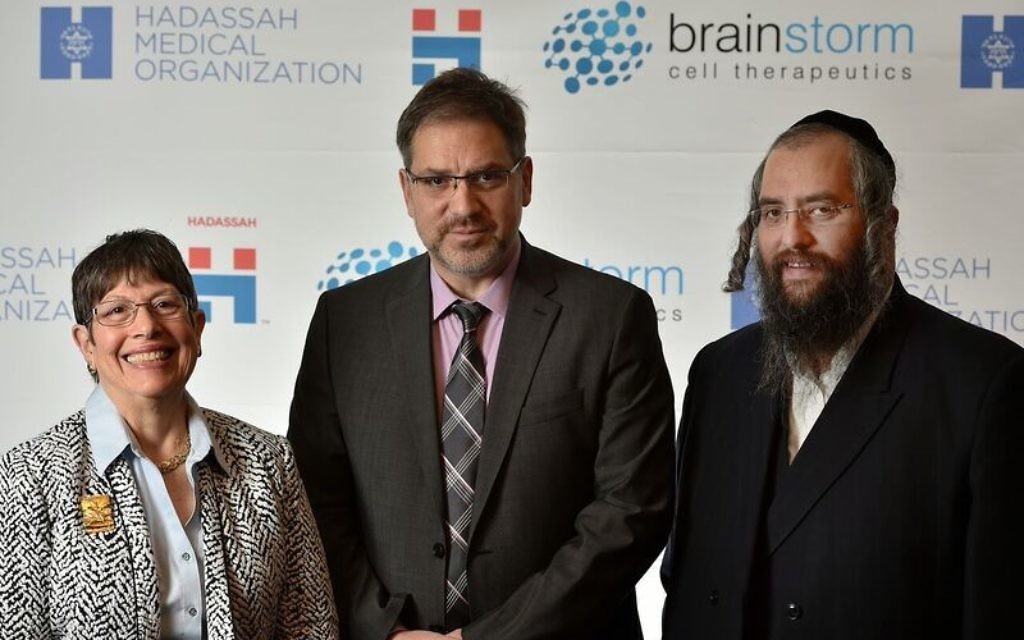Adult Stem Cells Slow ALS in Hadassah Trial
The Hadassah Medical Organization in Jerusalem has reported potentially breakthrough success with a U.S./Israeli company’s therapy for amyotrophic lateral sclerosis.
In clinical trials that began in 2011, the BrainStorm Cell Therapeutics stem-cell approach slowed the progression of ALS, also known as Lou Gehrig’s disease, in almost 90 percent of the 26 participating patients, according to findings published Monday, Jan. 11, in the Journal of the American Medical Association Neurology.

BrainStorm’s patented approach, called NurOwn, removes the risk of a body’s rejection of stem-cell treatment by using the patient’s own adult stem cells, harvested from bone marrow. NurOwn differentiates the stem cells to transplant only those specialized cells that can deliver nerve growth factors to improve the function of nerve cells affected by ALS.
Get The AJT Newsletter by email and never miss our top stories Free Sign Up
Through a technique developed by the Hadassah Medical Organization, the vibrant stem cells are injected into cerebrospinal fluid close to damaged tissue.
“The results are very encouraging,” said neurologist Dimitrios Karussis, the principal Hadassah investigator in the study.
While the initial work was done with open labels so the patients knew they were getting the stem-cell treatment, a Phase 2 double-blind study using the Hadassah protocol is running at the Mayo Clinic, Massachusetts General Hospital and the University of Massachusetts Memorial Medical Center.
ALS affects an estimated 30,000 people in the United States and 450,000 worldwide.
“I am optimistic that within the foreseeable future, we may provide a treatment to ALS patients that can slow down or stop the progression. I believe we are in the early stages of something new and revolutionary with this harvested stem-cell infusion therapy,” Karussis said. “While this is absolutely by no means a cure, it is the first step in a long process in that direction. I see this treatment as being potentially one of the major future tools to treat degenerative diseases of the brain and spinal cord in general.”
Hadassah President Ellen Hershkin said her organization is eager to continue Karussis’ work against ALS and other neurodegenerative and neuroinflammatory diseases, including multiple sclerosis.
Chaim Lebovits, the president of BrainStorm, based in Hackensack, N.J., and Petach Tikvah, said Hadassah will test different doses in Jerusalem to improve the therapy’s “spectacular results.”





comments